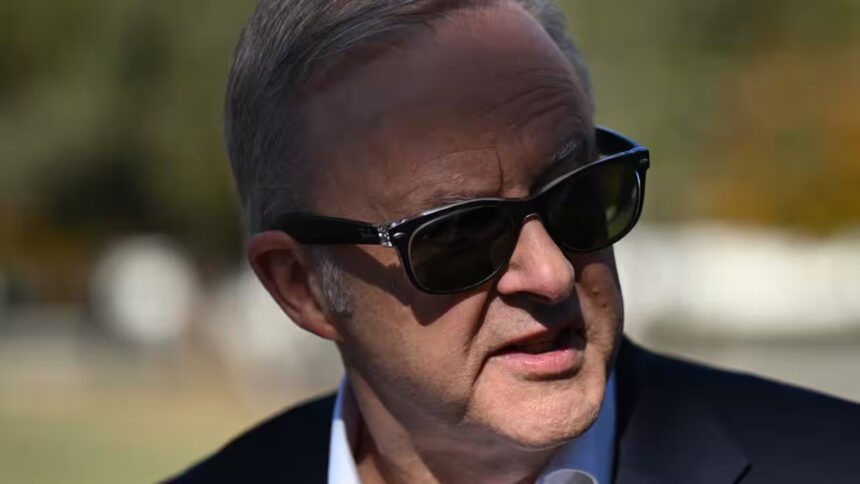Rising International Attention on West Papua
As Prime Minister Anthony Albanese prepares to travel to Jakarta, attention is turning to the ongoing West Papua human rights crisis. Activists and human rights groups are urging him to raise concerns over escalating violence in the region, where Indonesian troops have long been accused of serious abuses. For over six decades, West Papua has remained under Indonesian control, with no global recognition of its independence.
Escalating Violence and Rights Abuses
Recent reports reveal a worsening human rights situation. According to the Human Rights Monitor, at least 13 people have been killed in just the past six months. Over 200 individuals have faced arbitrary detention, intimidation, torture, and restrictions on cultural expression and assembly. The scale and intensity of these abuses marks a disturbing rise from the previous half-year, when nine people were reportedly killed.
Controversial Military Actions and Civilian Impact
The United Liberation Movement for West Papua (ULMWP) alleges a recent incident where Indonesian military forces fired from a helicopter, killing a man on a motorbike and severely injuring another in Puncak Regency. Indonesia claimed it was a targeted strike on West Papuan militants. However, activists insist civilians were harmed, and the injured man refuses hospital care out of fear of retribution.
Suppression of West Papuan Voices
For decades, West Papuan activists have demanded self-determination, speaking out against what they describe as a colonial-style occupation. However, foreign journalists remain barred from entering the region. While the government argues this is for journalists’ safety, critics argue it enables unreported violence and silences West Papuan voices.
Calls for Australia to Lead on Human Rights
Melbourne-based Lewis Prai Wellip, a representative for West Papuans in Australia, believes the silence from world leaders only makes things worse.
“The refusal of other countries to challenge Indonesia gives a green light to the oppressor to do whatever they want,” he said.
He is calling on Australia to lead by example and confront the issue.

Indonesia: Australia’s “Most Important Relationship”
Prime Minister Albanese has called Indonesia “Australia’s most important relationship.” After being re-elected, he named Jakarta among his top priorities. As he prepares to meet President Prabowo Subianto, West Papuan advocates hope he will address the crisis — not ignore it for the sake of trade and diplomacy.
“We cannot go about making business with Indonesia when they’re trampling on the rights of people and the respect of people,” said Wellip.
Calls to Uphold Rule of Law and Human Rights
“In Australia, we talk about the rule of law and believe in [the] human rights of everyone. Meeting with Indonesia, Anthony Albanese really needs to emphasise the rule of law and he needs to stress Indonesia’s need to respect West Papuan people’s rights.”
Australia’s Diplomatic Influence Could Make a Difference
Andreas Harsono, a researcher at Human Rights Watch, says Australia has enough diplomatic influence to make a difference.
“Anthony Albanese can ask President Prabowo to listen to his own general, who said that a security approach is not enough to solve the problems in West Papua,” Harsono explained. “Papuans also want the central government to listen and take a political approach.”
West Papua’s Strategic Importance in the Indo-Pacific
Papua’s location in the Indo-Pacific makes the West Papua human rights crisis a strategic concern for Australia.
“It is so important geographically as a pathway to northern Asia,” Harsono said.
Earlier this year, Russia reportedly requested access to a military base in Papua — a claim Indonesia denied, but one that triggered alarm among Australian policymakers due to proximity and potential weapon storage.
Economic Interests Fuel Conflict
The conflict is not just political — it’s also economic.
“Indonesia’s ongoing military operations in the highlands of West Papua displace civilians so that the military and government can have massive gold reserves,” Wellip claimed.
The region’s vast mineral wealth is seen as a driving force behind both military interest and civilian displacement.
Rising Violence and Military Presence
Harsono has been researching Papua for over 30 years. He says he’s been receiving increasingly disturbing photos and videos showing bombings of Indigenous villages and Indonesian soldiers under sniper attack.
In the past year, troop numbers have surged — a trend believed to be aggravating the conflict further.
Cultural Misunderstandings Lead to Abuse
A deeper cultural issue is also at play.
“If they see someone with an afro or in traditional minimal dress, they think they’re part of the resistance army and they’ve been treating them how they please,” said Wellip.
This lack of cultural understanding by new Indonesian troops often leads to profiling and abuse, fueling mistrust and fear among West Papuans.
Amnesty International Raises Concerns Over Impunity
During a visit to Indonesia in March, Amnesty International’s Secretary General Agnes Callamard expressed grave concern over entrenched impunity in West Papua.
The organization says military and police officers regularly escape prosecution for extrajudicial killings, torture, and suppression of civil rights.
“Law enforcement institutions fail to ensure accountability for human rights violations,” Amnesty stated.
Australia’s Response and the Stakes Ahead
Despite overwhelming evidence of abuse, international response remains muted. Australia’s Department of Foreign Affairs and Trade (DFAT) has been contacted for comment, but has not made any public statement. Meanwhile, the people of West Papua continue to hope for international attention and support.
The West Papua human rights crisis presents a serious challenge to Australia’s democratic values and regional leadership.
As violence grows and the Indonesian government continues military operations, Prime Minister Albanese’s trip could either serve as a turning point — or mark yet another missed opportunity in a long history of neglect.






